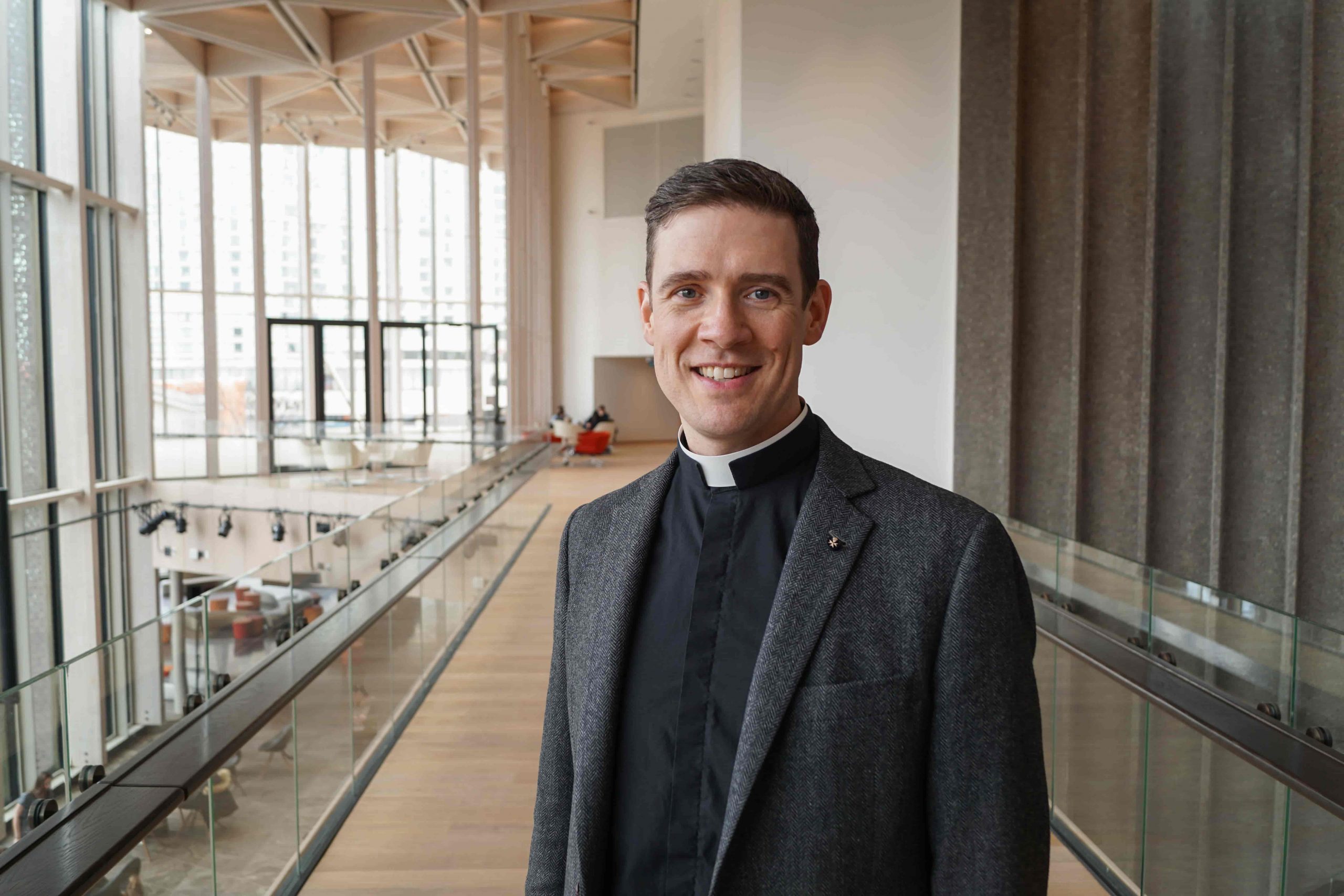Cardus is pleased to announce that President Michael Van Pelt has been awarded the The Queen Elizabeth II Diamond Jubilee Medal. This honour recognizes Canadians who who have built and continue to build this caring society and country through their service and achievements. The medal was presented by Member of Parliament David Sweet on Saturday October 20th, 2012. Click here to see a photo from the ceremony.

Michael Van Pelt awarded Diamond Jubilee Medal
October 20, 2012

Media Advisory: Ontario’s <i>Bill 13</i> Vulnerable to Legal Challenge
MEDIA ADVISORY: ONTARIO'S BILL 13 VULNERABLE TO LEGAL CHALLENGE HAMILTON, September 27, 2012—Ontario's new Accepting Schools Act is vulnerable to legal challenge for its violation of the rights of the province's Catholics, leading constitutional practitioner Eugene Meehan says in the latest issue of LexView. "Elements of (the Act) disregard Catholic doctrine and ignore constitutionally afforded denominational protection. They open the door for a "one size fits all" model that fails to respect Catholic differences and the purpose behind having separate school systems," Meehan writes in the legal review published by Cardus policy institute. "By encroaching denominational aspects of a school's functioning for the purpose of preventing prejudice, Bill 13 oxymoronically risks prejudicing minority religious groups. Instead of fostering respect for diversity of beliefs and school choices, it risks encouraging and endorsing a single point of view and nullifying the purpose of denominational schools," he adds. Eugene Meehan, Q.C., is a partner of Supreme Advocacy LLP in Ottawa, and author or co-author of 14 books on Canadian law. He is a former Executive Legal Officer of the Supreme Court of Canada and has been National President of the Canadian Bar Association. Cardus, a Hamilton, Ontario based think tank dedicated to renewal of Canada's social architecture, engaged him last summer to research the legislation for LexView. The Accepting Schools Act, or Bill 13 as it is popularly known, was passed by Ontario's legislature last June and came into effect September 1. Media attention has focused on its mandating of Gay Straight Alliance student clubs even in the province's Catholic schools. Meehan cautions, however, that the so-called GSAs are a side issue to the genuine challenge the new legislation presents to denominational rights protected by Section 93 of the Constitution Act, 1867, and to religious freedoms guaranteed by the Charter of Rights and Freedoms. He notes affected Catholics could even petition the federal cabinet to overturn the legislation under Section 93. The success of such a petition is naturally impossible to predict, he writes, as is the outcome of court action. But he points out that: Courts have recognized that the constitutional rights granted to denominational schools involve more than a guarantee of the right to establish denominational schools - the right to establish denominational schools necessarily includes the right to maintain the religious character of the schools. Specifically, courts have consistently recognized that Catholic denominational schools can function according to distinct Catholic philosophy and tenets.The full version of Meehan's opinion is available at to the public at www.cardus.ca/lexview. Requests for interviews with Cardus president Michael Van Pelt, Cardus director of research Ray Pennings, or Supreme Advocacy's Eugene Meehan can be made by emailing Kathryn de Ruijter, kdr@cardus.ca or phoning (905)528-8866 x30.-30-
September 27, 2012

Media Availability: Major Study on Private Education Outcomes
MEDIA AVAILABILITY: MAJOR STUDY ON PRIVATE EDUCATION OUTCOMES HAMILTON, September 21, 2012—Ray Pennings, director of research at Cardus, and David Sikkink, a renowned sociologist from the University of Notre Dame, will be available between 9 a.m. and 10 a.m. on Wednesday, September 26, 2012 to answer questions about the Cardus Education Survey, a major study showing Canadians educated at privately-funded schools out perform their government-funded peers in key areas of citizenship and civic participation. The report release and media availability will take place at the Holiday Inn Select, in the Cabinet Room, at Pearson International Airport: 970 Dixon Road, Toronto Ontario. Mr. Pennings and Dr. Sikkink were part of the multi-disciplinary team that studied the citizenship attributes of 2,000 Canadians aged 24-39. The survey, conducted in March 2012 by Angus Reid's Vision Critical group, found that graduates of the range of non-government schools are more likely than their government-school counterparts to volunteer, to be actively engaged in neighborhood and community groups, to participate in grassroots movements especially around environmental issues, and to have stronger families. "If we use the standards for citizenship outcomes found in most provincial education acts across the country, we find that the various non-government schools—separate Catholic, independent Catholic, independent non-religious, Evangelical Protestant, and religious home schooling—produce a higher proportion of graduates who meet or exceed those benchmarks than do government-schools," says Mr. Pennings. "It's clear from the findings that so-called private schools make a significant contribution to the public good," he added. If you have questions, or wish to arrange interviews with Ray Pennings and David Sikkink, please call Kathryn de Ruijter at 888-339-8866 ext. 30. What: Cardus Education Survey 2012 release Who: Ray Pennings, Cardus director of research and David Sikkink, University of Notre Dame When: 9 a.m. to 10 a.m. September 26, 2012 Where: Holiday Inn Select at Pearson International Airport: 970 Dixon Road, Toronto Ontario. Contact: Kathryn de Ruijter, 888-3339-8866 ext. 30.-30-
September 21, 2012

Cardus Mourns Passing of Kenton Van Pelt
It is with great sadness that we pass on the news of the sudden passing this past weekend of Kenton Van Pelt, the 15 year old son of Cardus President Michael Van Pelt and Dr. Deani Neven Van Pelt, who also serves as a Cardus Senior Fellow working on our Education file. Kenton's death came while swimming with family at a cottage on Saturday afternoon. Cardus's staple is commentary and research, seeking to apply the insights of 2,000 years of Christian social thought to the public issues of today. Today the Cardus family finds itself focusing on the most foundational of Christian insights applied to the personal lives of those we love dearly, even as together with the apostle Paul we confess our trust in "the God and Father of our Lord Jesus Christ, the Father of mercies and God of all comfort, who comforts us in all our affliction, so that we may be able to comfort those who are in any affliction, with the comfort with which we ourselves are comforted by God." (II Corinthians1:3-4). The arrangements are as follows: Visitation: Dodsworth & Brown Funeral Home, 378 Wilson St E, Ancaster ON L9G 2C2. Update (Jul 30, 4pm): The new venue for visitation is Ancaster Christian Reformed Church, the same location as the funeral service. Wednesday August 1st, 5:00pm - 9:00pm EDT. (Click here for map.)Funeral Service: Ancaster Christian Reformed Church, 70 Garner Road East, Ancaster, ON L9G 4X2. Thursday August 2nd, 11:00am EDT. (Click here for map.)In lieu of flowers, a scholarship fund has been created to promote short-term mission trips by students of Hamilton District Christian High School. Donations may be sent c/o First Christian Reformed Church, 181 Charlton Ave W, Hamilton ON L8P 2C9 Update (Aug 10): The scholarship is now being held and administered by Hamilton District Christian High School: 92 Glancaster Road, Ancaster, ON L9G 3K9.Over the next week, the Cardus team will be supporting the Van Pelt family and preparing them for the long road ahead. As an organization, Cardus also seeks to reflect the characteristics of Christian community that we aspire to commend in our writings and so we pass along this information asking that you keep Michael, Deani and their two daughters, Andrea and Meghan in your prayers during this most difficult time. On behalf of the Cardus team, Ray Pennings Senior Fellow / Director of Research Cardus
July 30, 2012

Cardus makes 2013 prebudget submission
On July 24, 2012 Cardus made a prebudget submission for the 2013 federal budget, flagging fresh research in charitable giving and the effect of tax credits.See our full submission here, and the accompanying data in powerpoint here.New Polling Research Suggests Increased Charitable Tax Credit Will Have Impact. Following up on proposals to add an additional category to the charitable tax credit so that donations over $450 receive a 42% tax credit, this submission introduces polling evidence which suggest the impact of such a change will increase the overall amount of charitable contribution. Detail: The proposal to increase the charitable tax credit is not an unfamiliar one as for the last several years, various groups including Cardus have made submissions on the subject. The arguments in support of these proposals are familiar: • Support for the Charitable Sector has been declining in recent years. • Most of the support is provided by a small “civic core†of Canadians • This has long-term implications that deserve a strategic policy response The House of Commons Finance Committee has acknowledged the significance of the issue in its previous reports and has engaged in a special study to study the impact of charitable donations. Recognizing that the debate at this stage is as much one of considering the relative urgency of this issue in the context of the many other worthy proposals which will certainly be presented to this committee, Cardus engaged a polling firm and asked Canadians how the most prominent proposals made regarding increasing tax incentives for charitable giving might impact their behaviour. The report we received from Angus-Reid Public Opinion is attached as an appendix. There are several highlights from the report which we would present for your consideration. Figure 1 – Levels of Engagement (see full submission) confirms a pattern that which research that Cardus has previously presented identified, namely that the impact of various proposals on those who already give significant amounts (more than $450 was the question in this survey) are much more engaged in almost all manner of community life than those who do not give. In other words, charitable giving is not an isolated activity that can be incented significantly on its own but is part of a much larger framework of decision-making. In our view, this confirmation has two conclusions for the committee to consider: In the long-term, the problem of declining civic core and decreased charitable giving is not a problem that can be solved through adjustments to the tax code. In the short-term, if we are intent on ensuring that charities maintain their capacity to provide the services we have come to expect of them, the strategy most likely to have an impact is a strategy that focuses on those who are already giving. Canadians indicate that of the three proposals presented to them (1. Cardus’ proposal described in the survey as “Adding a category of 42%, which would provide an extra 13% for gifts totaling over $450 in a given yearâ€; 2. Imagine Canada’s “stretch credit†described in the survey as providing “a 10% tax credit for additional year over year donationsâ€; 3. Don Johnson’s proposal described in the survey as “Providing a special tax incentive for substantial gifts.â€), Proposition #1 would be the one most likely “to make our household give more†with 43% agreeing, while Proposition #2 closely followed at 38%. As Figure 2 indicates (see full submission), the impact of adding an additional tax category for donations over $450 is that which the various proposals on household and total giving is most likely to increase overall charitable donations. Our argument remains that the greatest potential to boost the charitable sector in the short term remains in a substantial increase to the charitable tax credit. This measure will benefit the regular civic core of donors who are sustaining the sector. For them, tax benefit is not the primary motivator for their donation, but it will provide them with increased capacity to give. Even better, the evidence shows they are most likely to return that increased capacity right back to the charitable sector. This measure will help the charitable sector encourage and rely not on exceptionally large gifts, but on regular, repeated gifts from dedicated donors. These are the everyday gifts enabling charities to provide valuable service, and to pursue common good.
July 24, 2012

Janet Epp Buckingham, Deani Van Pelt appointed as Cardus Senior Fellows
Cardus is pleased to announce the appointment of two new Senior Fellows: Dr. Janet Epp Buckingham and Dr. Deani Van Pelt. Dr. Buckingham serves as associate professor at Trinity Western University, and Director of the Laurentian Leadership Centre in Ottawa. She is one of Canada's foremost authorities on religious freedom. Dr. Van Pelt is an associate professor at Redeemer University College, and Director of Teacher Education. She is serving as the head of qualitative studies on the Cardus Education Survey. She is one of the nation's leading authorities on independent education, and home schooling. The Cardus Senior Fellows are a network of recognized experts in a wide range of disciplines. They bring specialized expertise and capacity to our research projects, networks and events. For more information on our Fellows or these appointments, please contact Ray Pennings.
July 4, 2012

The logic of the Gospel is a challenge, and remains so, even for cardinals
VATICAN CITY - Attending a consistory for new cardinals is something of an ambivalent thing. On balance it is a positive experience, a festive occasion to be sure. Yet there is also an uneasiness, for there are touches of worldliness about it which ought to make a Christian disciple wary. A consistory is truly a celebration of something particularly Catholic, namely the Roman and Petrine dimensions of the Church. Such occasions of pride and joy strengthen the faith, as they reinforce the bonds of affection that unite Catholics with the successor of St. Peter. The link between the local bishop created a cardinal and the Bishop of Rome is evident enough, and it highlights the communion of all local bishops with the See of Rome, and therefore the unity of the Church universal. The presence in Rome of pilgrims accompanying the new cardinals gives a personal expression to that universality. Hearing Czech and Cantonese spoken in St. Peter’s Square makes concrete the reality that the Church is ever so much bigger than my own country, let alone my own diocese or parish. For countries where having a cardinal is something of a novelty, especially in places where the Church is undergoing hardship, the pride the pilgrims take in this national honour is truly moving. Even in places where cardinals are expected — like Toronto and New York — the excitement of numerous pilgrims is a welcome sign that the faithful have not grown weary, and that to love the Church is a necessary consequence of loving Christ Jesus. In a time when leaders in all spheres of life are challenged and even denigrated, a consistory encourages people to identify themselves with their own bishops — to travel with them, to pray with them, to celebrate with them, to see in their honours an honour for the local Church and for the entire country. Erosion of unity between the faithful and their shepherds damages the holiness and witness of the Church, so occasions that enhance that unity are to be welcomed. Finally, a consistory is a great pilgrimage to see Peter, the foundation of the Church’s unity. It is a pilgrimage for the cardinals themselves, both the new and the old, reminding them of their special and solemn solicitude for all the churches. It is a pilgrimage too for all the faithful who travel to Rome, and pilgrimage is a fundamental aspect of the Christian faith, whether it be to a local shrine or to the tomb of the apostle Peter. Why then the ambivalence? There is another dimension, highlighted by the comment heard from voices both secular and ecclesial, that the College of Cardinals is the “most exclusive club†in the world, rendering the consistory a fabulous initiation ceremony for the newest members. The aspect of a man achieving worldly success, of having finally climbed to the top rung of a career ladder, is not absent from consistory week. The ancillary aspects of careerism in the clergy — ambition, jealousy, vainglory — sometimes come to the fore, if not in the cardinals themselves, then certainly in the conduct of those who fawn over them. The priest is to be an icon of Jesus Christ, and amidst all the parties and revelry the face of Christ can be obscured rather than highlighted. Could this be what Pope Benedict had in mind when he commented upon the Gospel passage read at the consistory itself — the account of James and John asking for the prominent places in heaven? “James and John demonstrate that they do not understand the logic of the life to which Jesus witnesses, that logic which — according to the Master — must characterize the disciple in his spirit and in his actions,†the Holy Father said. “The erroneous logic is not the sole preserve of the two sons of Zebedee because, as the evangelist narrates, it also spreads to ‘the other 10’ apostles who ‘began to be indignant at James and John’ (Mk 10:41). They were indignant because it is not easy to enter into the logic of the Gospel and to let go of power and glory. St. John Chrysostom affirms that all of the apostles were imperfect, whether it was the two who wished to lift themselves above the other 10, or whether it was the 10 who were jealous of them.†So it was in the beginning, is now and ever shall be. I was pleased to be in Rome for the consistory. It was a blessed event. And part of the blessing, it seems to me, is to see that the logic of the Gospel remains always a challenge, especially for the clergy, all the more so for cardinals.
February 22, 2012

Van Pelt at the Standing Committee on Finance
Cardus President Michael Van Pelt appeared before the Standing Committee on Finance, speaking to members on the importance of changes to charitable tax law. The video stream/download from the Committee is located here. Van Pelt appears at 11:45.
February 16, 2012

Cardus Makes Charitable Submission to Committee on Finance
On January 17, Cardus renewed the fight for a new charitable tax proposal. We made a submission to the Canadian federal government's Standing Committee on Finance. In it, we made two recommendations:An immediate and substantial increase to the charitable tax credit rate that is designed to provide benefits to the “civic core†of donors who, by their previous behaviour, have proven their reliability and likelihood of investing this back into the charitable sector. Continued financial investment in exploring and developing alternative forms of charitable and non-profit organizational structures that will be able to utilize financial and other capital effectively through development of new social enterprise platforms and approaches. This will require legal, financial, and regulatory innovations.Read our entire submission here .
January 17, 2012



